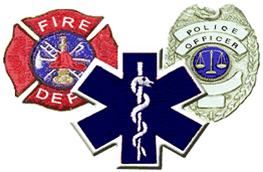COVID-19 Statement
To my First Responder Clients:
First, you are in my thoughts as you serve our community and risk exposure to assist others in a time of need. So much gratitude for your service and commitment to keeping us healthy and safe.
For the new few months, I will continue to serve you via a HIPAA compliant and a confidential telehealth platform. If by chance you are coming to my office, please know that we are taking extra precautions regarding regular cleaning of public areas, sanitizing all surfaces, use of air filters, and have hand sanitizer available.
At this time, most insurance companies, including Medicare, and Washington State Labor and Industries are reimbursing for telehealth services. Please contact your insurance carrier to verify they are covering telehealth services.
Please check out the “Telehealth” section to learn more about the process of telehealth.
First, you are in my thoughts as you serve our community and risk exposure to assist others in a time of need. So much gratitude for your service and commitment to keeping us healthy and safe.
For the new few months, I will continue to serve you via a HIPAA compliant and a confidential telehealth platform. If by chance you are coming to my office, please know that we are taking extra precautions regarding regular cleaning of public areas, sanitizing all surfaces, use of air filters, and have hand sanitizer available.
At this time, most insurance companies, including Medicare, and Washington State Labor and Industries are reimbursing for telehealth services. Please contact your insurance carrier to verify they are covering telehealth services.
Please check out the “Telehealth” section to learn more about the process of telehealth.
|
First responders have one of the most psychologically demanding jobs there is, yet minimal training is received in order to manage the deleterious effects of stress. Prolonged exposure to disturbing events has a cumulative effect on the life of a first responder. These effects include depression, post-traumatic stress disorder, substance abuse, marital and family problems, lost careers, and suicide.
According to the International Association of Fire Chiefs’ Foundation (IACF; 1991): Stress is one of the most serious occupational hazards in the fire service, affecting health, job performance, career decision-making, morale, and family life. Emotional problems, as well as problems with alcohol and drugs are becoming increasingly evident. High rates of attrition, divorce, occupational disease, and injury continue…{and} suicide is a real and tragic alternative for some. Training first responders to manage the effects of trauma, stress, and grief is arguably just as important as learning the specific skills of the job. Because first responders care for the health and safety of our communities, their emotional and behavioral wellness is paramount in preparing them for the physical and psychological rigors of the profession. |
The mission of First Responder Psychological Services is to advance the behavioral health and wellness of those who serve our communities .
Image Credit: Seattle Fallen Firefighters Memorial Photo by Jim Wheeler
Image Credit: Seattle Fallen Firefighters Memorial Photo by Jim Wheeler

